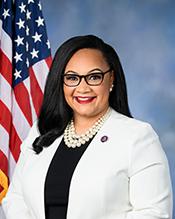0
STOP Fentanyl Overdoses Act of 2023
3/9/2024, 8:15 AM
Summary of Bill HR 3375
The main provisions of the bill include increasing funding for law enforcement agencies to crack down on the production and distribution of fentanyl, as well as providing resources for public health agencies to educate the public about the dangers of fentanyl and how to prevent overdoses. The bill also calls for increased access to naloxone, a medication that can reverse the effects of an opioid overdose, in order to save lives.
Additionally, the STOP Fentanyl Overdoses Act of 2023 aims to improve data collection and reporting on fentanyl-related overdoses in order to better understand the scope of the problem and develop more effective strategies for prevention and treatment. The bill also includes provisions for increasing access to treatment for individuals struggling with opioid addiction. Overall, the STOP Fentanyl Overdoses Act of 2023 is a comprehensive piece of legislation that seeks to address the fentanyl crisis from multiple angles, including law enforcement, public health, and treatment. By increasing resources and implementing evidence-based strategies, the bill aims to reduce the number of fentanyl-related overdoses and save lives across the country.
Congressional Summary of HR 3375
Support, Treatment, and Overdose Prevention of Fentanyl Overdoses Act of 2023 or the STOP Fentanyl Overdoses Act of 2023
This bill addresses data collection, treatment, harm reduction, and other issues related to substance misuse and addiction. It particularly focuses on opioids, fentanyl, and related substances.
Specifically, the bill expands surveillance of fentanyl and related substances. This includes requiring a study on how to track overdoses by type of drug (including fentanyl) and awarding grants to states for collecting data about fentanyl-involved overdoses. The bill also provides for (1) training on detecting and handling fentanyl for law enforcement, and (2) grants for forensic laboratories to facilitate surveillance of controlled substances seized by law enforcement.
Additionally, the bill establishes and modifies requirements to increase access to treatment and prevention services. For example, the Bureau of Prisons must make certain services, including medication-assisted treatments, available to individuals in its custody. The bill also establishes grants and requires other efforts to expand access to medications that temporarily reverse opioid overdoses (e.g., naloxone) and related harm reduction activities.
Furthermore, the bill extends, subject to some conditions, liability protections for those who administer aid in an emergency (commonly known as Good Samaritan laws) to individuals who administer opioid overdose reversal drugs and to individuals who seek medical attention for themselves or on behalf of another for a drug overdose.
The bill also requires multiple reports, including a report by the Department of State on foreign sources of certain drugs.





